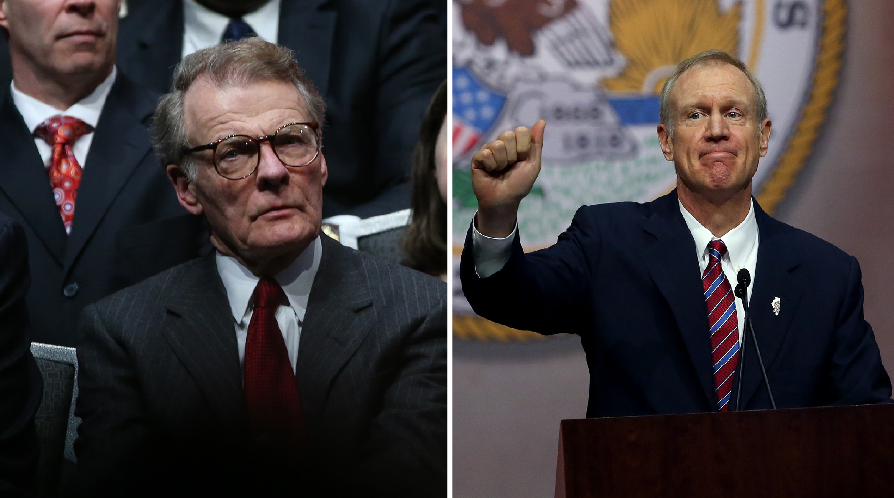Rauner, Madigan feud means Illinois’ unpaid bills could reach $13.5 billion
November 17, 2016
Republican Gov. Bruce Rauner’s budget office estimates the state’s backlog of unpaid bills will hit a record $13.5 billion by July if the governor and Democrats who control the General Assembly remain deadlocked over a complete spending plan, a bleak reminder of what’s at stake as negotiations begin anew.
The projection came as the comptroller’s office announced the bill backlog hit $10.6 billion on Wednesday, a situation that’s turned thousands of vendors and small businesses into creditors for state government as they’re forced to wait months to be paid for services rendered.
Despite the grim prediction, Rauner and Democratic leaders gave little indication much will change to reverse that trend, as both sides seized on the figures to plead their case. Democrats led by House Speaker Michael Madigan pointed to the numbers as proof that it’s time for Rauner to set aside the economic agenda he’s made a condition of a larger budget deal, saying the state’s budget problems are more pressing and changes would not bring about immediate savings.
Advertisement
Rauner countered that Democrats aren’t focusing on the big picture, saying quick budget fixes will mean nothing in the long term if Illinois doesn’t take steps to help businesses grow and improve the overall economy.
The figures were among the topics up for discussion as Rauner and legislative leaders met for the second day in a row ahead of the expiration of a temporary stopgap spending plan at the end of the year.
Also on the agenda was an updated list of items the governor wants as part of a broader deal. They include a freeze on property taxes coupled with government consolidation, term limits for lawmakers and legislative leaders, a rewrite of the school funding formula and the curbing of costs associated with the workers’ compensation system for employees hurt on the job.
Rauner also wants an overhaul of the state employee pension system, which now has an unfunded liability of nearly $130 billion, according to a report released this week by the bipartisan Commission on Government Forecasting and Accountability.
While Democrats indicated they would review the governor’s wish list, Madigan was quick to repeat his contention that negotiators should follow “the framework” for other temporary spending agreements. Those agreements did not include items on the governor’s economic agenda, and Republicans have said they are unwilling to shelve them yet again.
“I am simply offering my advice. I am part of the process and they are part of the process,” Madigan said. “I am not trying to be overbearing, but I am giving my advice based upon experience. If someone wishes to refute what I am saying based upon experience, I am interested to hear it, but the record is pretty clear.”
Madigan said the deficit projections offered “compelling reasons” to get a budget in place sooner rather than later. If the impasse continues through the end of Rauner’s term in office in 2018, as some Democrats have predicted, the bill backlog would reach a staggering $27.7 billion.
Advertisement*
“For two years, I’ve said the No. 1 problem affecting the state of Illinois is the budget deficit. Now, we ought to get to work,” Madigan said.
Rauner called Madigan’s argument in opposition to his agenda “baloney,” saying Democrats for years have passed unbalanced budgets with little regard for how it would add to the state’s debt load.
“Now, all of a sudden we’ve got to balance a budget and we can’t do anything that doesn’t balance the budget immediately? Come on, can we please be realistic?” Rauner said.
The governor maintained that he would not go along with another budget agreement without winning portions of his agenda, though he said he remained flexible on which measures must be approved. He hinted that signing off on a tax increase before then would sacrifice his leverage to win changes.
“Does anybody think they’ll talk about it later? No,” Rauner said. “Those in power have been in power. Those in power have created the problem.”
___
(c) 2016 the Chicago Tribune
Visit the Chicago Tribune at www.chicagotribune.com
Distributed by Tribune Content Agency, LLC.
Advertisement








